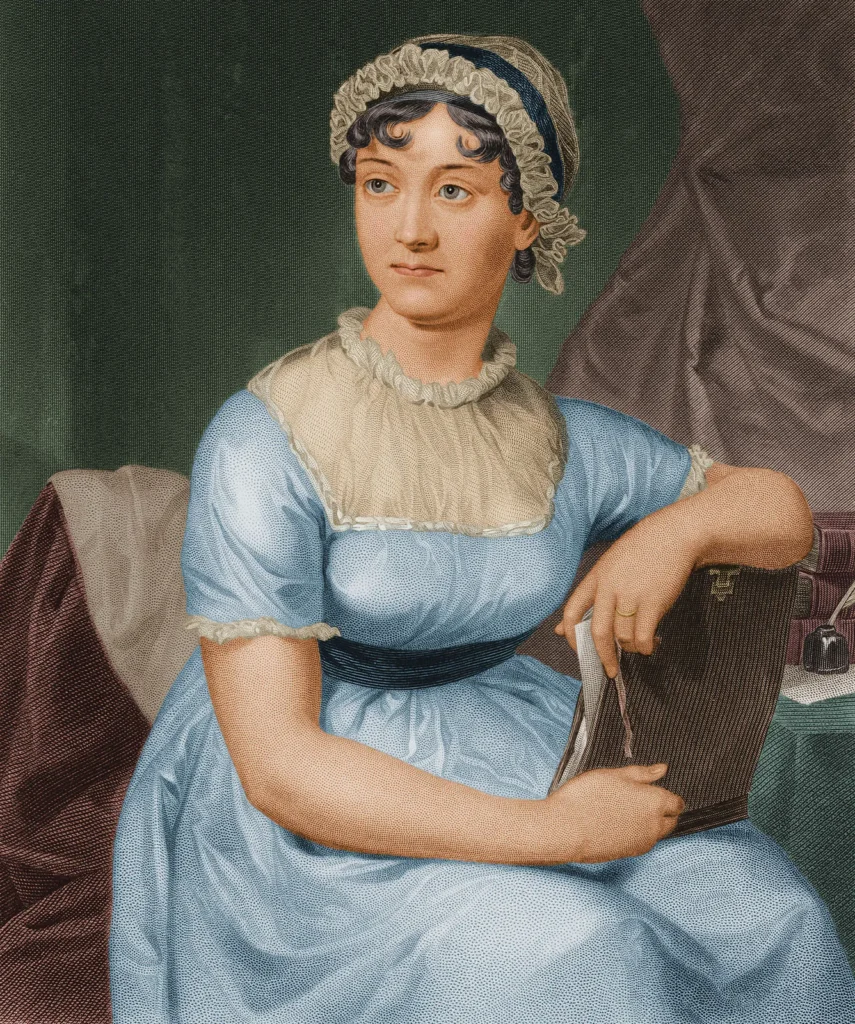
Introduction: Jane Austen, an English novelist of the 19th century, continues to captivate readers worldwide with her insightful social commentary, wit, and timeless romances. Let’s delve into the life, works, and enduring legacy of this celebrated author.
Early Life and Background:
- Born on December 16, 1775, in Steventon, Hampshire, England, Jane Austen was the seventh of eight children.
- Austen grew up in a close-knit family, surrounded by literature, as her father was a clergyman and her mother was from a well-read gentry family.
- Despite the constraints of her time, Austen pursued her passion for writing, honing her skills through reading and composing stories from a young age.
Literary Career and Notable Works:
- Austen’s literary career began in earnest with the publication of her first novel, “Sense and Sensibility,” in 1811, followed by “Pride and Prejudice” (1813), “Mansfield Park” (1814), and “Emma” (1815).
- Her novels are characterized by keen observations of society, sharp wit, and exploration of themes such as love, marriage, class, and gender roles.
- “Pride and Prejudice” stands as Austen’s most famous work, beloved for its timeless romance between Elizabeth Bennet and Mr. Darcy and its astute commentary on societal norms.
Fame and Recognition:
- While Austen initially published her novels anonymously, her works gradually gained popularity and critical acclaim.
- By the time of her death in 1817 at the age of 41, Austen had achieved moderate success as a published author, although she did not attain widespread fame during her lifetime.
- However, her posthumous reputation soared, with subsequent generations recognizing her genius and cementing her status as one of the greatest novelists in the English language.
Enduring Legacy and Adaptations:
- Jane Austen’s legacy endures through her timeless novels, which continue to be celebrated and studied in literature courses worldwide.
- Her works have been adapted into numerous film and television adaptations, further solidifying their place in popular culture.
- Austen’s influence extends beyond literature, shaping the romance genre and inspiring countless authors to emulate her style and themes.
Conclusion: Jane Austen’s novels remain as relevant and beloved today as they were during her lifetime, with their timeless appeal transcending generations. Through her insightful commentary, engaging characters, and enduring romances, Austen has left an indelible mark on the literary world, ensuring that her legacy will continue to inspire readers for centuries to come.



